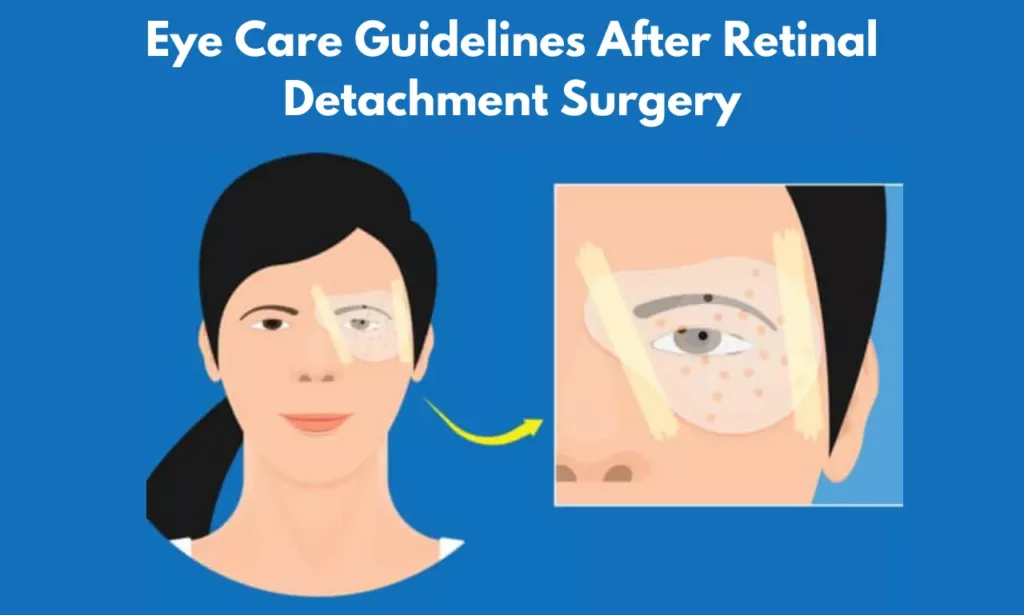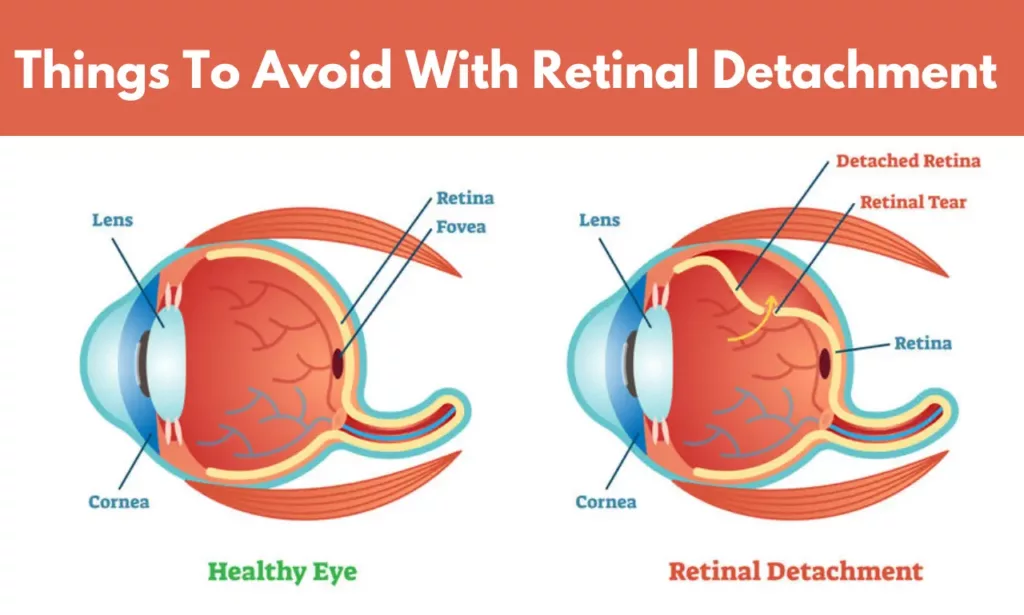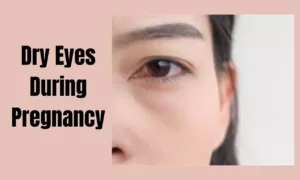Do you ever heard about retinal detachment? What is it, and is it dangerous? The Retina is a significant component of the eye and plays an essential role. This Retina assists in our visualisation; however, the detachment of the Retina is very complex and may lead to what circumstances. Hence, in this article, we will closely deal with the queries of what the Retina is, about its detachment, and things to avoid with retinal detachment. So, let’s start!
What is Retina?
The Retina is a bunch of delicate tissues at the back of the eyes. It is an important part which helps in creating a visual image. The Retina converts light, which enters our eyes, to electrical signals. The brain receives these electric signals and creates a visual image of any object. Retina performs lots of particular tasks for our vision. The retina has many functions like helping with night vision, developing pictures, helping in understanding colours, sending signals to the brain, changing light into electrical signals and so on.
Retinal Detachment And Its Causes
Retinal detachment is a disease, or we can call it a medical emergency, in which the Retina, the tissues at the back of the eyes, is pulled from its position and causes many visual problems. These problems include the feeling of small floaters or particles in the vision field, the sensation from shadows and irritation from flashes of lights.
There are many reasons that doctors and specialists list as a cause of retinal detachment, like trauma, holes or tears in the Retina and the ageing process. But all these causes have to be treated appropriately to save the patient from painful and stressful conditions. Hence, retinal detachment is a problem we must deal with on a priority basis. Mostly, the treatment of this problem is surgery by a specialist.
How To Detect Retinal Detachment Early
Always pay attention towards changes in your average body and visionary habits. Any vision change, irritation from light, feeling shadows formation or curtain in front of your eyes, moving particles or floaters in the vision field are some symptoms which need urgent attention. This may happen because of retinal detachment.
Things To Avoid With Retinal Detachment
As we described earlier, retinal detachment is a stressful and painful disease which can cause complete blindness if not treated properly. A few more things are necessary to avoid a patient having Retinal detachment. Avoiding these things may prevent any complications.
- Retinal detachment patients should avoid sports and activities that pressurise the eyes, like weightlifting, boxing, wrestling, mountain climbing, marathons, high-intensity fitness training, martial arts training, karate and others. Hence, this is one of the major points in the list of things to avoid with retinal detachment.
- Moreover, retinal detachment patients should also avoid activities which having rapid altitude changes, like skydiving, scuba diving, snowboarding, skiing, bungee jumping, and hot air balloon riding, as a change in altitude can put pressure on the eyes and it can lead to complexity.
- In addition, this patient should avoid activities which involve head bending, like yoga, and neck, shoulder and head exercises, as it may increase intraocular pressure.
- These patients also avoid eye rubbing, especially aggressively and continuously, as the eye structure of retinal detachment patients is more delicate than that of ordinary people.
- The patient should avoid smoking as smoking is dangerous for all eye diseases; thus, retinal detachment patients should avoid excessive alcohol, high-level caffeine, and smoking.
Main Types Of Retinal Detachment Surgery
Let’s explore which types of surgeries are performed for retinal detachment patients. There are three main types of surgeries which doctors use for the treatment of this disease.
Pneumatic Retinopexy
In this procedure, primarily, a gas bubble is used. This gas bubble creates pressure and forces the Retina to go back to its place.
Scleral Buckling
In this type of surgery, doctors place a piece of silicone with an outer eye surface. The purpose of this piece or band is to push the eye inward. This method reduces the tension of the detached Retina, and mainly after this method, the Retina is attached again to the eyewall.
Vitrectomy
In this procedure, doctors remove gel-like vitreous humour from the eye and replace it with silicone oil. This method makes access to the Retina easier during repair.
How Long Does It Take to Recover from Retinal Detachment Surgery
Complete recovery after the surgery may extended up to months from a few weeks. Every person’s immune system, willpower, and physical condition vary, so predicting a fixed period is impossible. A person can recover from retinal surgery in a few weeks with reasonable care, proper rest, timely medication, thorough follow-ups, and focus on doctors’ instructions.
However, people with weak physical conditions, multiple diseases, and diabetic patients need more recovery time. Another thing which is necessary to focus on is that full recovery or complete vision enhancement may take a long time. It may be extended up to a year.
Follow Up After Retinal Detachment Surgery
Retinal detachment surgery is typical. Hence, it is essential to have a keen follow-up after the surgery. It is advised that you regularly follow up on your condition with your ophthalmologist for clear guidelines.
The follow-ups made immediately after the operation are essential and mainly involve check-ups and eye pressure monitoring. Moreover, in the post-operation checkups, the opthamaloigis explicitly checks the Retina’s position and capacity for overall healing. The frequency of checkups varies slightly after the operation. Still, soon after, depending on the recovery process, the checkup timeline might change from weekly to monthly and monthly to yearly. The primary aim of the checkups is to ensure all the complications are diagnosed and resolved promptly.
Eye Care Guidelines After Retinal Detachment Surgery

All individuals must follow a few primary eye care regulatory guidelines after surgery. Below, we have discussed all of the:
- Eye protection after the surgery is a must.
- Protect your eyes from excessive light.
- You can use sunglasses as a protective shield to avoid light
- Avoid rubbing your eyes after surgery. It might get complicated
- Keep the eyes away from dust and irritants
- Use prescribed eye drops to protect your eyes from irritants or infections. It assists in keeping it clean and frees your inflammation.
Thus, following this will surely assist you in your speedy recovery and are all advised by surgeons.
Lifestyle Changes After Retinal Detachment Surgery
Retinal detachment is always typical; hence, changing your lifestyle after the retinal detachment surgery is essential. These changes will assist you a lot and prevent any complications in future.
- It is permanently rescinded to keenly follow the post-operational instruction regulated by your surgeon or ophthalmologist regarding future precautions and medications.
- After the surgery, avoiding lifting heavy products for a limited period is advised until your opthalmologist allows you. These activities build intracellular pressure on the eyes.
- Protect your eyes from excessive light, as eyes are mostly light-sensitive after surgery. Use sunglases or lese to portect.
- Avoid rubbing your eyes, as it can cause harm to eye structures.
- Always follow the hygienic schedule and primary eye hygiene. Use eye drops if recommended.
- Don’t use the computer or phones excessively; limit your screen time and put your screencast 20 feet away.
- Adjust your diet correctly and always take a diet that is balanced and full of nutrition that assists in proper eye recovery and eye health.
- Keep your body hydrated.
- Quit smoking as it affects your Retina badly.
Conclusion
Retinal detachment is a complex disease with severe results like blurry vision or blindness. Hence, the article above has dealt with the quest to avoid with retinal detachment along with tips and more to deal with retinal detachment even after surgery.
FAQs
What are the warning signs of a detached retina?
There are various symptoms of retina detachment, such as the appearance of floaters, photopsia, which means the sudden flashes of light in one or both eyes, blurry vision, the reduction of side visions, and the shadow over your image.
What happens when your Retina detaches?
It occurs when the Retina is lifted from the position and is placed towards the back of the eye. This Retina detaches, resulting in blurry vision and serious problems, sometimes blindness.






